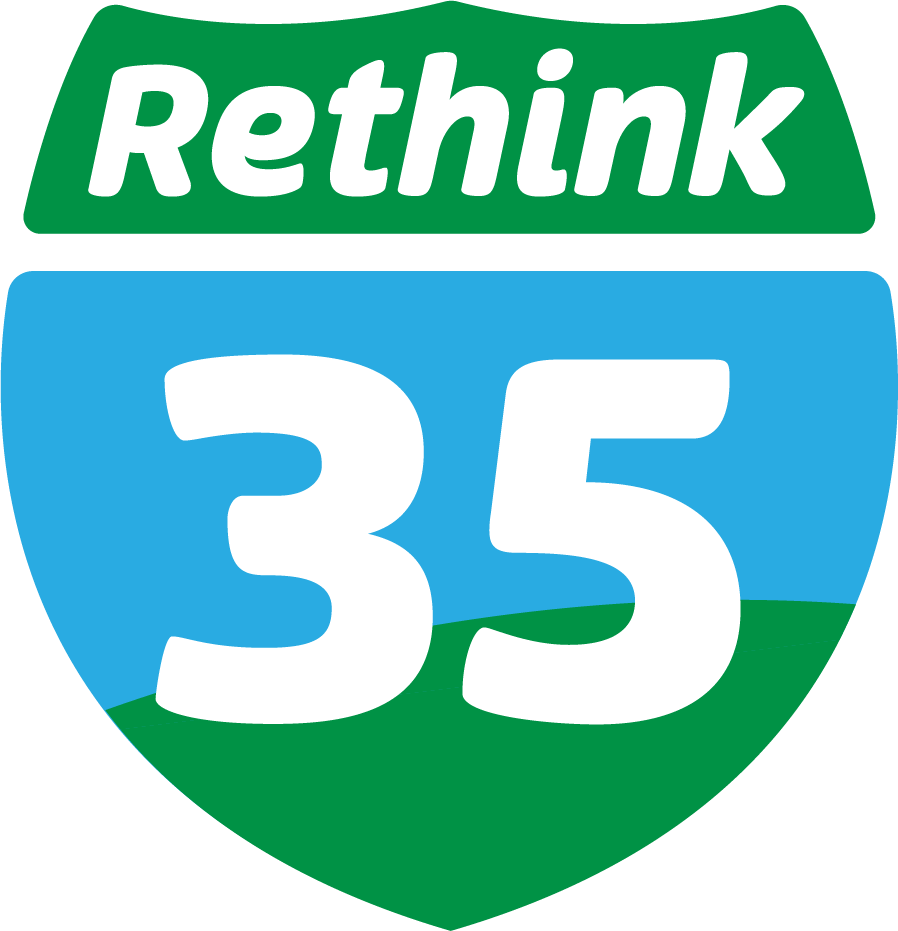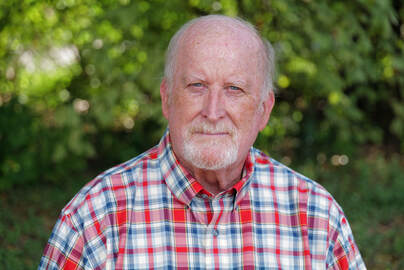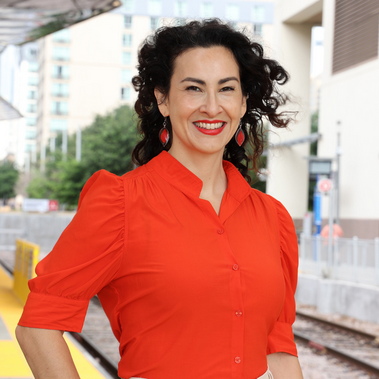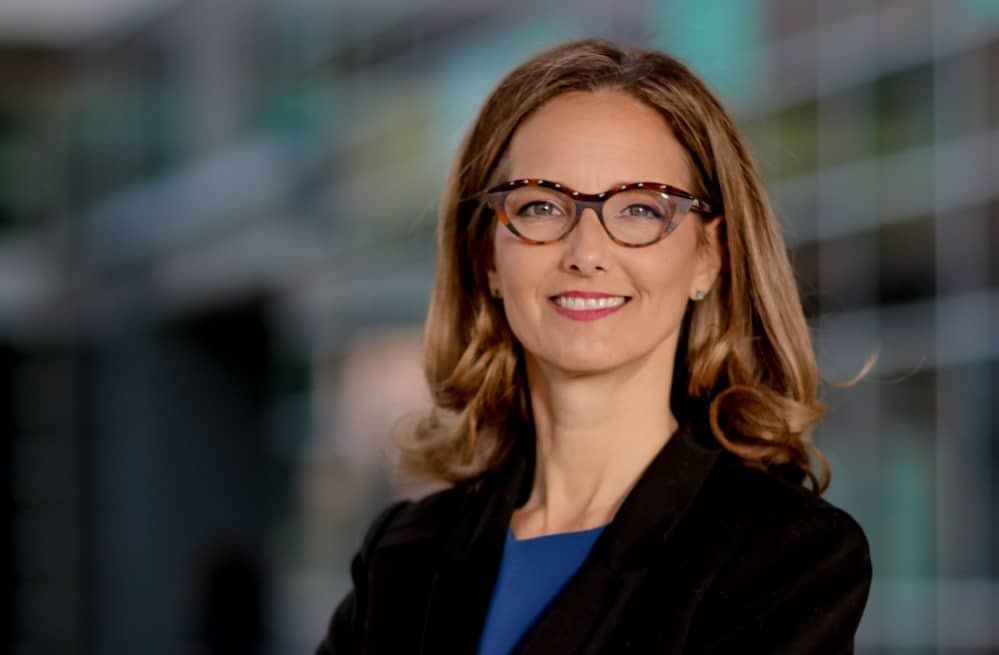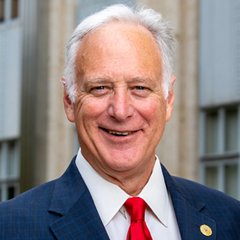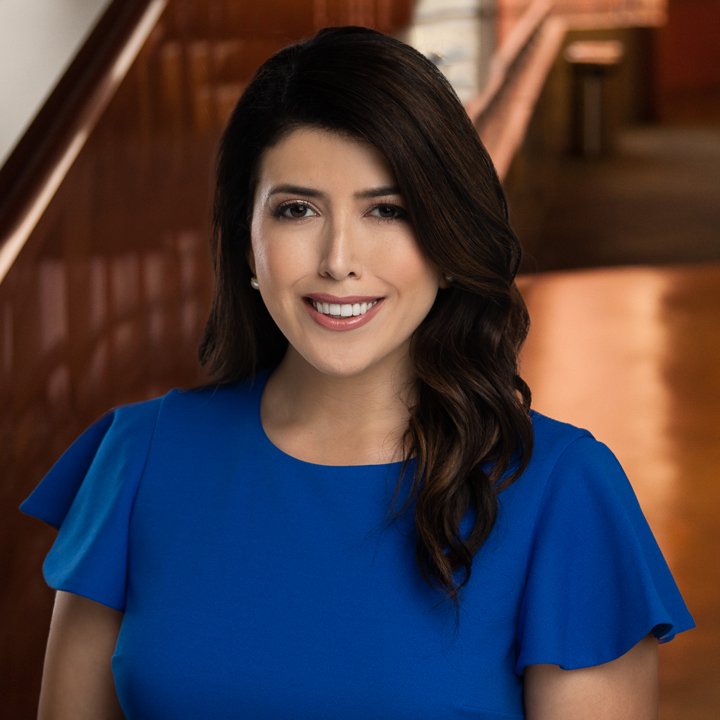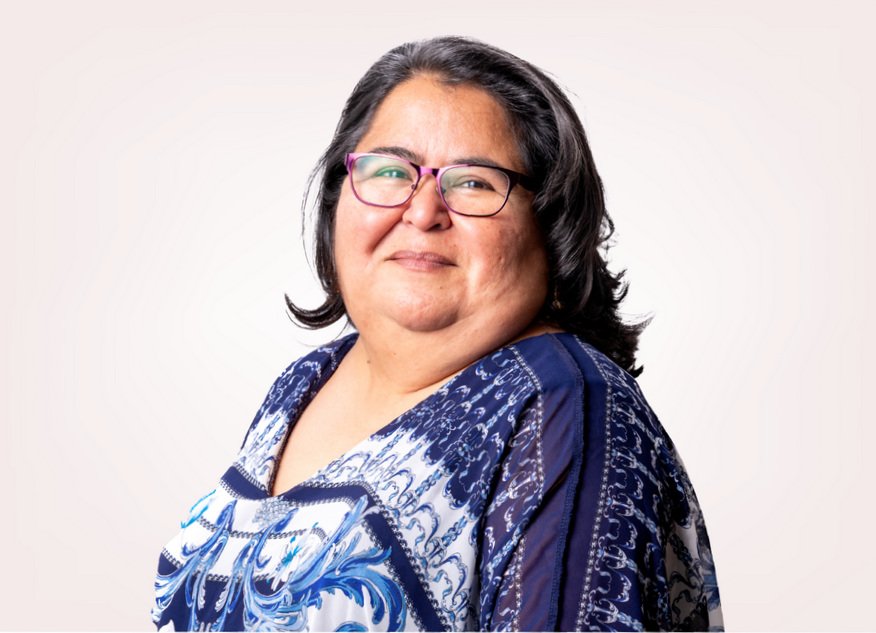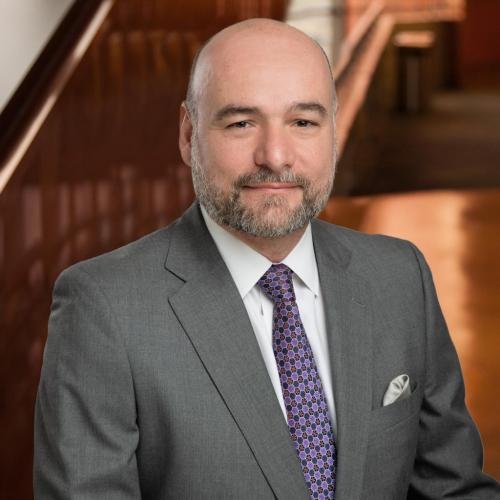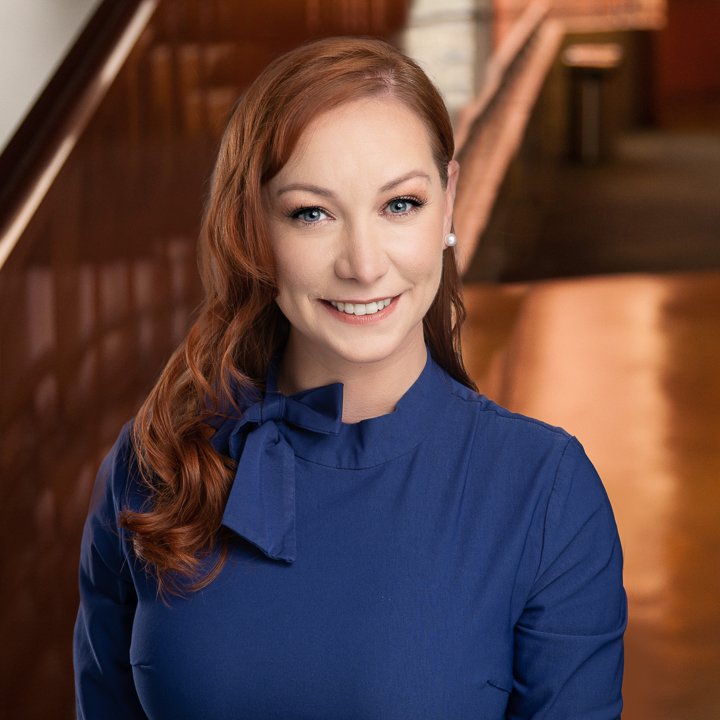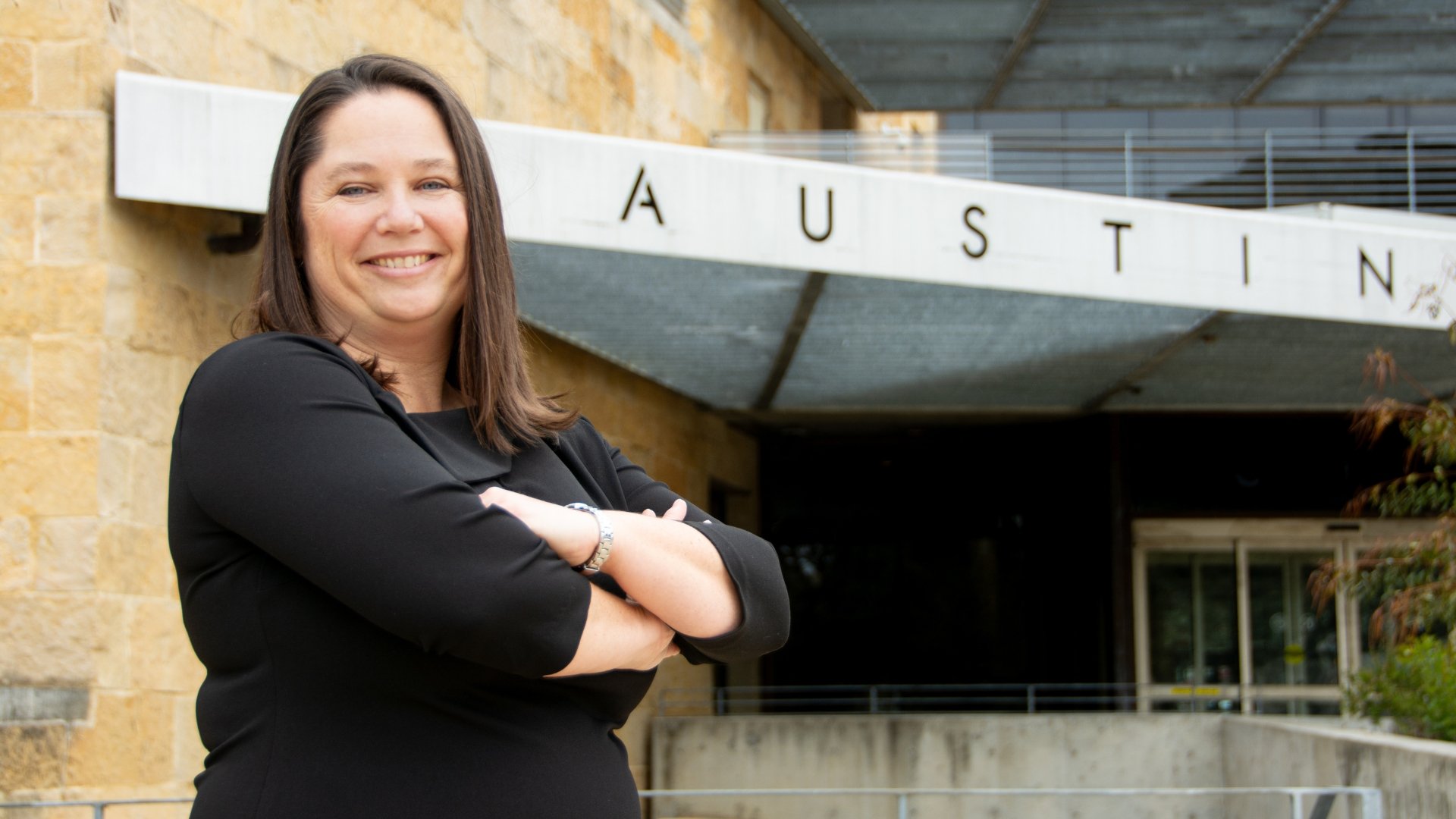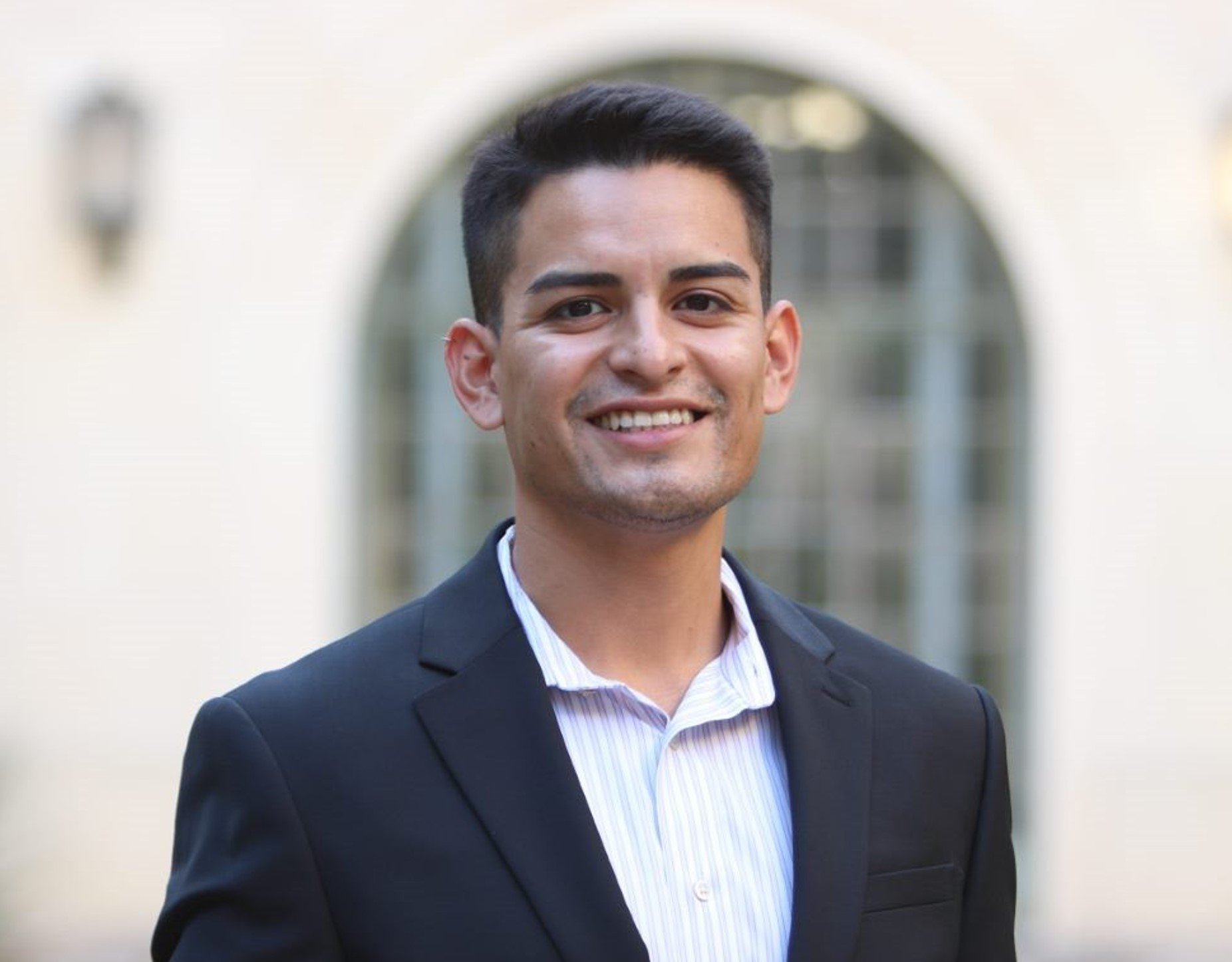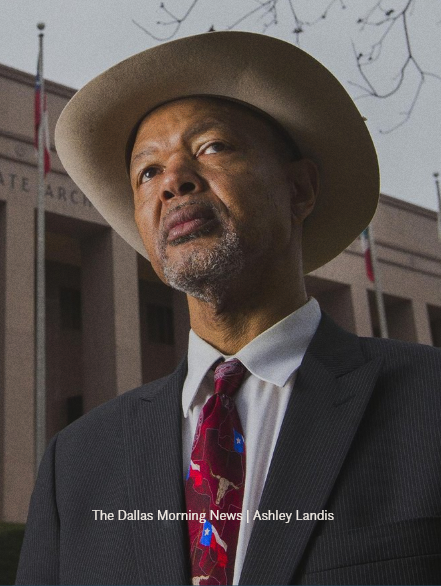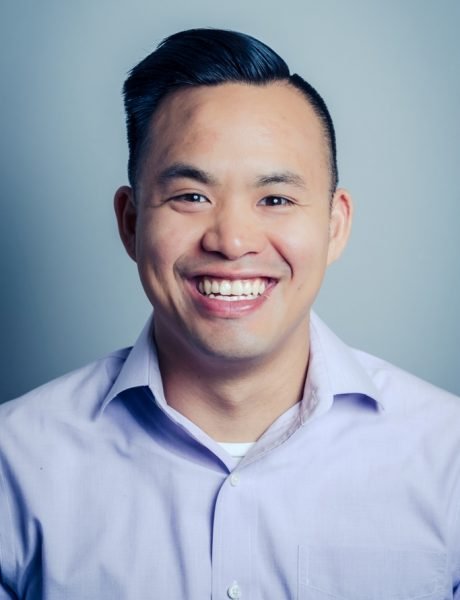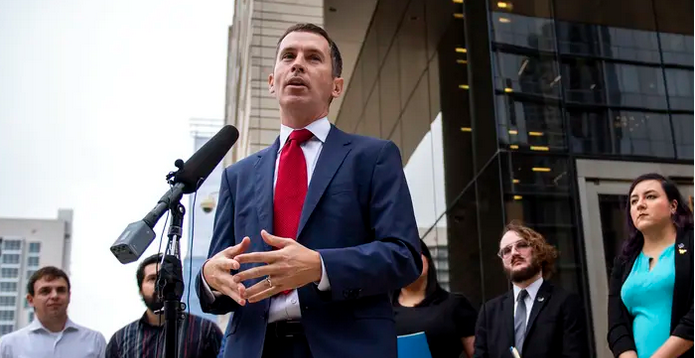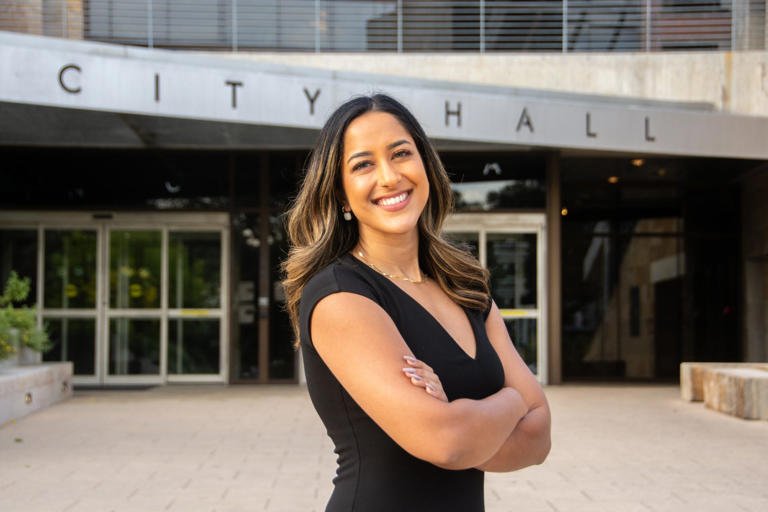
2024 Austin City Council Candidate Questionnaire
The Results Are in!
This is your complete guide to the 2024 Austin mayoral and City Council candidates’ positions on the proposed I-35 expansion. Answers were submitted via our candidate questionnaire.
Of Responding candidates, 81% oppose expanding I-35 through Austin.
That’s 13 out of 16.
Do You Oppose Expanding I-35 Through Austin?
Yes (81.3%)
No (12.5%)
No response (6.3%)
Candidate position SUMMARIES
Highlighted quotes
detailed responses to our questionnaire
Question 1
How do you feel about highway expansions in general in the Austin area (and possibly beyond)?
Mayoral Candidates
Jeffery L. Bowen
In regards to I35. In reality, my opinion does not and would not matter. The interstate was going to be expanded no matter what. Kirk Watson, as a Senator, pushed this agenda. The feds knew the road had issues and was going to expand this major trucking route from Mexico to Canada. Plain and simple. Anyone that has traveled this interstate that has not seen the expansion that has taken place from San Antonio to Dallas is highly aware the “Downtown” Austin portion was last but not least. As for other highways. I have traveled Austin roads for more than 35 years. I traveled Ben White and 183 when there were multiple lights. Brodie Lane going from two lane to four lane and the expansion of in lanes up and down I35. Some call it progress, I call it the need to handle the amount of thru and permanent traffic. My main concern is the amount of UNSAFE drivers endangering others. I had to travel for my job across several states, so I have seen the good and the bad. Expansion of our highways is going to continue. Smarter planning is needed and the competition for highway dollars will always be a fight. At least TXDot maintains their roads where as Austin does not.
Doug Greco
I’m a strong supporter of enhancing our public transportation system, and I think we need to implement Project Connect. I plan to be the mayor that brings it in on time and on budget. I think Mayor Watson has been the king of toll roads, and this has been his preferred form of highway expansion. I also think his business interests and role as a public official have often gotten enmeshed when it comes to highway projects. I think any highways we build should be public highways. Watson initially wanted the I35 expansion to be funded through tolls, until Governor Abbott stopped that. Austin continues to be the fastest-growing city for millionaires, and tolls contribute to our cost of living going through the roof.
I signed onto the civil rights complaint to the Dept. of Transportation based on the potential displacement and segregation the current plan would have. I thought the civil rights complaint, or the project being slowed down by a lawsuit could allow us to negotiate a better deal. With any highway project, we need to look closely not only at the homes and businesses lost through eminent domain, but the potential displacement caused by increased rents and housing costs. Maintaining the cohesiveness and viability of existing communities need to be priorities when considering building new highways or expanding existing ones.
Carmen Llanes-Pulido
I feel that they are a constant source of congestion, pollution, and inconvenience with what seems like endless construction. They are also difficult to avoid living in the state that we are in, and I wish we had more robust federal investments in transportation—especially for commuter transit—that could come before highways in prioritization. I currently live in a neighborhood directly impacted by the I-35 expansion project and feel that I’m in this with all the directly impacted neighbors, pleading for bigger picture thinking, and that’s why I signed on in support of ReThink35’s challenge to the project.
Kathryne "Kathie" Tovo
Opposed -- and I have been standing with the community against the I35 expansion for years.
Kirk Watson
General Statement:
I worked with TxDOT and state leaders for more than a decade to design a project that addresses Austin’s mobility needs and reflects our values.
We wanted to reduce congestion and increase mobility for cars and trucks as well as creating greater opportunities for efficient transit in managed lanes. We wanted to connect — to reconnect — our community both physically and figuratively by tearing down a concrete barrier that’s divided our home for generations. We wanted to improve safety and better accommodate light rail and bus routes downtown. We wanted to enhance bike and pedestrian use and reduce pollutants running into Lady Bird Lake.We’ve achieved these goals, in large part due to the strong community voices that have focused on making this project better.
We’ve achieved these goals by recognizing that we would never meet everyone’s concept of perfection and that there is no project of this nature and scope that can be perfect. But it will be a great improvement and much better than what we have.
The elimination of the upper decks on I-35 and the lowering of the main lanes from Airport Boulevard to Oltorf will have a transformative effect on our community. While that’s a positive change to what we have now, there is the opportunity to do even more to realize the full potential of this generational investment by capping large portions of I-35 through downtown.
District 2
Vanessa Fuentes
As a Councilmember, I have concerns about the impact of highway expansion on our community. While I understand the need to improve transportation infrastructure to address congestion and connectivity, I am particularly mindful of how such projects can affect neighborhoods and the environment.
In District 2, many residents face significant challenges accessing other parts of Austin without a vehicle. This lack of connectivity can limit opportunities and create barriers for those who rely on public transportation or alternative modes of travel. Addressing these issues is crucial for ensuring that all residents can move about the city more easily.
I support investing in and expanding alternative transportation options. Enhancing our public transit system, improving bike lanes, and creating pedestrian-friendly infrastructure are all vital components of a balanced and interated transportation strategy. These measures offer more choices for residents and help reduce traffic congestion and promote a more sustainable future.
Ensuring that our approach prioritizes equitable access and supports diverse transportation options for everyone in Austin is important.
District 4
Monica Guzman
General Statement:
“The I-35 expansion is displacing hundreds of people and businesses. Adding more lanes will not address traffic congestion.”
José “Chito” Vela
I oppose highway expansions. Highway expansions in other cities have failed to relieve highway expansion. The Katy Freeway in Houston was expanded to 26 lanes, but within just a few years congestion was just as bad as it was before the expansion. Highway expansions increase noise, air, and water pollution.
Single occupancy vehicles are an inherently inefficient way to move people around in a major city. We should prioritize improving our public transit, bicycle, and pedestrian infrastructure instead.
District 6
Mackenzie Kelly
As a city council member in Austin, I understand the complexity and controversy surrounding highway expansions. Highway expansions, especially in a growing city like Austin, can be seen as a way to address traffic congestion and improve connectivity for commuters. However, they also come with concerns about environmental impact, displacement of communities, and the potential to encourage urban sprawl.
In general, I believe it's important to weigh the benefits and drawbacks of each project carefully. For example, expansions that aim to address bottlenecks and enhance safety can be crucial, but it's also essential to consider alternative transportation options like public transit, biking, and walking infrastructure. This balance can contribute to creating more sustainable and livable communities.
In Austin, we're dealing with rapid growth, so the need for better transportation infrastructure is undeniable. However, I believe we should always consider how these expansions affect affordability, local neighborhoods, and the environment. I tend to support projects that prioritize the well-being of my constituents, including maintaining Austin's unique character while addressing our transportation challenges.
Krista M. Laine
Highways were designed to enable cars to travel long distances quickly, without required stops or slow downs. By clearing the way for cars moving through as fast as possible, a highway’s design features create barriers for everything other than cars traveling in the same direction as the highway.
When a city is thriving, its residents and workers feel a strong sense of connectedness, community, and well being. With the mushrooming size of cities, highways now run through the heart of cities more often, creating a long, clear dividing line that:
separates a city’s residents, workers and neighborhoods from each other
interrupts the flow of traffic in all directions other than the highway’s direction
imposes a scale that makes any form of travel besides by car more challenging
increases air, water, and noise pollution, as well as other nuisances in the heart of the city
increases the number of high-speed accidents where people live and work.
Highways were meant to be connectors between our cities – not arterials within a city. When a city has enveloped a highway, it is time to re-design such that the city maintains a scale and speed suitable for the people who live and work there, while the highway goes around the city, fulfilling its purpose of connecting cities with each other.
Highway expansions in other cities have also proven to be no more than a temporary fix for traffic. For example, Houston’s Katy Freeway increased to 26 lanes, which were congested just as badly within just a few years.
Therefore, highway expansion in the heart of a city is not the most effective approach to meeting the needs of a city’s residents or workers.
District 7
Edwin Bautista
In general, I'm opposed to highway expansions in Austin (and beyond) because I believe it represents an outdated approach to addressing traffic congestion that often exacerbates the very problems it's meant to solve. Various academic research studies have shown that expanding highways typically leads to more cars on the road in addition to increased pollution and further sprawl - all while failing to provide a long-term solution to our mobility challenges.
As someone deeply committed to sustainable urban planning, I believe that Austin’s future lies in reducing our reliance on cars and investing in alternatives that promote equity and environmental responsibility. The latter includes expanding and enhancing public transit, improving bike/pedestrian infrastructure and encouraging efficient land use planning that fosters density and transit-oriented development. These approaches not only address congestion, but also create a more connected and resilient city.
It's clear to me that highway expansions have historically caused significant harm to marginalized communities, particularly in East Austin, where past projects have led to displacement and the division of neighborhoods. The city of Austin must learn from these mistakes and focus on reconnecting (rather than further dividing) our communities.
My vision for Austin is one where people, not cars, are prioritized in our planning decisions. The latter means moving away from highway-centric thinking and embracing innovative transportation solutions that reduce congestion, lower emissions and improve the quality of life for all residents. If elected, I will work tirelessly to ensure that our transportation policies reflect these values and contribute to a more sustainable and equitable Austin.
Gary Bledsoe
I think ReThink 35 is raising important issues regarding I-35. While I might not agree with all the group is doing, I give ReThink credit for keeping the pressure on the policymakers and elected officials to address important concerns regarding the expansion of I-35. Primarily, I’m talking about the environmental problems — pollution and related health illnesses — that come with such a mega expansion. And what of the damage to the aesthetics to our city with an even larger asphalt corridor/scar running the length of our city? What are the trade-offs in this issue? And where are the alternatives or compromise positions to address traffic congestion? ReThink has got me thinking about those questions and I’m guessing the group has others thinking about them, too.
Pierre H. Nguyen
General Statement:
Huge multilane highways divide communities, displace families and small businesses, worsen air quality, and lead to increased traffic congestion. They may seem like a solution, but they often exacerbate economic inequality and harm the environment, creating more problems than they solve.
Adam C. Powell
I’m strongly against highway expansion here in Austin. Our city should be moving towards a less car-dependent future: highway expansion works completely against that in addition to massive negative environmental, equity, and historical repercussions.
Mike Siegel
Highway expansions represent a fundamental policy failure. We know better, as a society: that car culture is driving climate change; that more roads means more environmental destruction; that suburban sprawl is an inefficient use of scarce resources. Unfortunately, our political system gives disproportionate power to the financial interests that benefit from highway expansions, including extractive fossil fuel industries and suburban homebuilders.
If there’s anywhere in the South that should chart a path away from highway culture and toward a more compact, environmentally sustainable, transit rich and socially integrated way of being, it’s Austin and the Central Texas region. We may have lost the battle in terms of the current round of federal investments in Interstate expansion, but the struggle continues.
I want to be part of that shift in priorities and vision. The work of Rethink35 to build opposition to the I-35 expansion within the Austin City Council and Travis County Court of Commissioners represents a tremendous step forward. Now, in the same way that the Democratic Party has been able to expand into the Austin suburbs (for example, to turn Hays County “blue”), the progressive transportation movement needs to organize city by city and county by county to encourage public transportation investments and reverse the seemingly inexorable drive to pave our planet.
District 10
Ashika Ganguly
I believe highway expansions should be approached with caution in Austin, as they will lead to increased traffic and environmental concerns. Instead, I support investing in sustainable, multimodal transportation options like public transit, bike lanes, and pedestrian infrastructure to reduce congestion and promote long-term mobility solutions that align with Austin’s growth and environmental goals.
Question 2
If you oppose I-35 expansion / highway expansions in general, what kinds of positive alternatives do you envision?
(You may mention, if you choose, the Rethink35 and Reconnect Austin proposals.)
Mayoral Candidates
Jeffery L. Bowen
As I stated above my opinion on expansion does not matter. What does matter to me is the lack of transparency regarding the Cap & Stitch. I believe the taxpayers of Austin are totally unaware of the cost to them regarding the “CAP”. Even if it is turned into a massive park, what is the cost to maintain this area per year? The city can not maintain the parks we have now. There is NO TRANSPARENCY on this “Cap & Stitch”. WHY? Just a lot of presentations to WOW the taxpayers.
Doug Greco
As I mentioned we need to continue our investments in public transportation, as well as making our city bikeable and walkable for pedestrians. I would prioritize working with CapMetro to reduce inequity in our transit system by making riding the bus free, along with investing in greater frequency and reliability so fewer people are left waiting. It does look like the I35 expansion will move forward, barring any legal decision to the contrary. Given that, I think we need the caps and stitches infrastructure to ensure the best quality of life. The problem is that when Mayor Watson negotiated this I35 deal, he didn’t negotiate for the state to pay for the nearly $1B in caps and stitches. Therefore the City of Austin is stuck with the tab, and must either fund this directly or find alternative funding. I’d rather have caps and stitches than not, but the Mayor should have negotiated a better deal for Austin when he was State Senator.
Carmen Llanes-Pulido
I support Rethink35’s proposal with a relocation of highway traffic to Highway 130. I think that, given that the I-35 expansion is already predicted to be far over budget, there is a case to be made that it must be reconsidered. I’m still unclear as to what order of magnitude the proposed expansion must be over budget to force TX DoT to return to the state or federal government to ask for more funding, and I believe that moment could be an opportunity to push for a reconsideration. We could likely make a fiscal argument for the state to take over the 130 toll road and remove its tolls. What has been considered a foregone conclusion may be a new opportunity.
Kathryne "Kathie" Tovo
I find especially compelling the alternative to route truck traffic off I35 and removing tolls along SH-130.
District 2
Vanessa Fuentes
This year, the city has made significant strides in making it easier to develop diverse housing options across Austin. While there's still work to be done, we aim to create a city where residents can easily walk to essential places like grocery stores, restaurants, and pharmacies. This is a key step in transforming how people navigate and experience our city. It represents one of the most impactful changes city leaders can implement to improve urban mobility and accessibility.
District 4
José “Chito” Vela
The Reconnect Austin proposal was an excellent proposal that kept the highway capacity TxDOT wanted while freeing up valuable downtown land and narrowing the area the highway/access roads would occupy. This was a win/win proposal that also generated substantial additional property tax revenue. The Rethink 35 proposal was also good and I do wish we had studied the possibility of rerouting traffic to the 130 toll road and removing the tolls on it. Many cities in the US and internationally have successfully removed highways without causing major traffic issues so the Rethink 35 proposal is quite likely realistic but was never seriously considered by TxDOT, unfortunately.
However we must still do everything we can to mitigate the negative impacts of highways whenever possible. Efforts to bury highways and add large caps have been very successful in cities such as Phoenix, Dallas and Boston. Capping can reclaim valuable urban land, reconnect neighborhoods, and greatly reduce noise and light pollution to the surrounding areas. While they aren’t cheap, the potential added value to the surrounding areas is enormous and leveraged properly can potentially pay for most, if not all, of the cost of capping. Clyde Warren Park cost over $100 mill, but has enabled billions in added value to the surrounding area.
TxDOT and traffic engineers often focus on maximizing throughput through the highway, while connectivity and capacity across the highway is at best a secondary concern. Austin highways often have 1-2 miles between crossings, especially outside of the downtown area. That is unacceptable in a major city. Any major highway projects should focus on adding new connections across the highway. I made an effort to highlight this issue and push TxDOT to do better on the I-35 project, and will push on this issue on future projects.
I also support highway modernization efforts to fix dangerous on and off ramps and otherwise adopt the best modern practices for traffic safety.
District 6
Mackenzie Kelly
As a city council member in Austin, I understand the complexity and controversy surrounding highway expansions. Highway expansions, especially in a growing city like Austin, can be seen as a way to address traffic congestion and improve connectivity for commuters. However, they also come with concerns about environmental impact, displacement of communities, and the potential to encourage urban sprawl.
In general, I believe it's important to weigh the benefits and drawbacks of each project carefully. For example, expansions that aim to address bottlenecks and enhance safety can be crucial, but it's also essential to consider alternative transportation options like public transit, biking, and walking infrastructure. This balance can contribute to creating more sustainable and livable communities.
In Austin, we're dealing with rapid growth, so the need for better transportation infrastructure is undeniable. However, I believe we should always consider how these expansions affect affordability, local neighborhoods, and the environment. I tend to support projects that prioritize the well-being of my constituents, including maintaining Austin's unique character while addressing our transportation challenges.
Krista M. Laine
Highways are an important part of our transportation network, but when they are highly congested and engulfed by a city, I think it is most effective to:
re-route through traffic around the city,
expand safe, pleasant, multimodal transportation options to get around within the central city
create transit hubs at the city’s outskirts with express transportation into the central city and to major employers
Reconnect Austin and Rethink 35 were both thoughtful proposals that could have brought many benefits. I have also seen firsthand in Boston just how transformative it can be for a city to bury a highway, replacing all those cars with a safe route for people on foot and bike, plus a buffer of plants, trees, benches, art, and child-friendly sprinklers on both sides.
However, transportation infrastructure is extremely expensive, and Austin must work within funding realities, including TxDOT’s enormous impact on what is financially feasible.
If I were on Council, I would negotiate as effectively as possible with TxDOT – and also seek federal funds – so that we craft the best solutions possible for Austin residents and workers – not for cars and trucks just driving through.
However, I would also exercise caution in how much of Austin’s own revenues are redirected toward reconfiguring IH-35. Highway and transportation projects are expensive and have frequent cost overruns. Improving basic city services as well as other infrastructure – like reliable utilities service and expanded multimodal transit options for all of Austin – are too important to sacrifice for more self-funded IH-35 caps.
District 7
Edwin Bautista
I oppose the I-35 expansion and highway expansions because I believe our city needs to embrace forward-thinking alternatives that address our mobility challenges in a sustainable and equitable way. Rather than widening highways, which only encourages more car use through induced demand that further perpetuates congestion, I envision a future where our transportation system prioritizes people (not vehicles).
One key alternative is investing in a robust and efficient public transit system. The latter includes expanding high-frequency bus routes, developing dedicated bus lanes and continuing the buildout of the Project Connect light rail system. I believe that improving public transit can help reduce the number of cars on the road, lower emissions and make transportation accessible to everyone (regardless of income).
I also support enhancing bike and pedestrian infrastructure. The city can encourage more Austinites to choose active transportation by creating safer, more connected bike lanes and pedestrian pathways. I believe the latter benefits public health, reduces traffic and contributes to a more vibrant urban environment.
The Rethink35 and Reconnect Austin proposals offer innovative solutions that align with these goals. Rethink35 advocates for rerouting heavy traffic and transforming I-35 into a boulevard that reconnects neighborhoods, reduces traffic and creates new public spaces. Reconnect Austin proposes capping sections of I-35, covering them with parks and green spaces while rerouting through traffic underground. I commend support both local initiatives which aim to heal the divisions caused by the highway and create a more livable and people-focused Austin.
Lastly, I envision more efficient land use planning through a comprehensive land development rewrite that promotes denser and transit-oriented development. The latter can help reduce the need for long commutes and making it easier for people to live close to work, schools and essential services. I strongly believe a LDC rewrite will not only addresses congestion, but also supports affordable housing and vibrant, walkable neighborhoods.
Gary Bledsoe
Austin certainly needs a better and more efficient highway system to accommodate traffic. But there are many ways to achieve this in an environmentally-friendly way, which is not currently on the table with the expansion of I-35. I am in support of HOV lanes, for instance, designated for buses, vehicles that carry multiple passengers, and car-pooling vans. Those should be added to I-35. We also should look seriously at rerouting truck traffic and other vehicle traffic to loop around the city when their destinations aren’t local. We could do that by using incentives for our existing toll road by significantly cutting tolls on SH-130. I also want to see greater emphasis put on incentives for hybrids and electric vehicles to reduce carbon emissions and building out a better, more efficient public transit system via Capital Metro and Project Connect. In the latter case, we must address public trust issues regarding Project Connect. We also could offer free parking everywhere in the city, particularly downtown, for EVs to cut emissions. I’m also not in favor of dismantling the top deck of I-35 without much more input from our community. Doing so without plans to address displacement and dispossession of communities of color and small or iconic Austin establishments — or a anti-displacement fund on the scale we have with Project Connect — would trigger and accelerate displacement, speculative land deals and further land grabs because of the new property that would be freed up by such actions. I do believe I-35 could be vastly improved and that might involve some level of expansion to accommodate the things I’ve outlined. But expansion to a 20-lane highway through the city without a meaningful study of alternatives is not something I can support without data. I admit, I don’t have all the answers and there are people who are smarter than me on this topic. But here’s what I believe — I believe our decisions on issues like this must be grounded in facts, data, evidence, impact to our environment (including heat island effects) and common sense. I also want to study an On Demand System similar to what is used in many cities in Europe and some in the US like Shreveport. It would utilize larger capacity vehicles like Super Shuttle and ride app technology similar to Lyft and utilize electric vehicles. Some citizens approached me with the idea and showed me some data and I think it is clearly worthy of looking into more.
Adam C. Powell
I support Rethink35’s proposal for an Urban Boulevard in place of I-35, with traffic re-routed outside of the city.
Mike Siegel
I support alternatives including:
Investments in public transportation infrastructure, including bus, light rail, intercity rail, and high-speed rail;
Investments in bicycle and pedestrian infrastructure;
Incentives and investments to promote infill housing, to allow for denser, interconnected, and environmentally sustainable neighborhoods and communities; and
Incentives for major employers to support telework and otherwise reduce commuter travel.
Specifically, in terms of I-35, I would have much preferred strategies that would re-route interstate traffic to 130 and away from the city itself.
District 10
Ashika Ganguly
I would prefer to focus on transforming the corridor into a multimodal hub with expanded public transit, pedestrian pathways, green spaces, and improved access to surrounding neighborhoods. However, I recognize that good policy making involves working with all parties and stakeholders in order to extract the most community benefit for the public good. If I35 expansion is a reality that we must face in Austin, on council I would prioritize working with TxDOT in order to make sure that the expansion provides as much community benefit as possible, such as new connectivity and green spaces through cap and stitch.
Question 3
If (re)elected in November, would you be prepared to speak publicly against I-35 expansion and other highway expansions in the Austin area and/or take other actions?
Feel free to elaborate on your answer.
Mayoral Candidates
Jeffery L. Bowen
Since Austin is just one of the CAMPO members, making the residents of Austin aware of the long term plans of roads is of vital importance. Being open and transparent is rule one. That has been lacking for years in the development or maintenance of our roads. We need to face that the lack of a good highway system impacts the economy of an area. Good transit required a good highway system.
Doug Greco
I think absent a ruling from the court, which could give the city leverage in negotiating a better deal, I think the project will go forward. As the only at-large seat on Council, the mayor’s responsibility is to be an outspoken voice for community concerns and demands. I will fight to get the state to pay for the caps and stitches infrastructure. I don’t think the city of Austin should get stuck with that bill. I also will continue to push for Project Connect, and oppose toll road expansion.
Carmen Llanes-Pulido
Yes, and I would make the case above, that the state would save money by taking tolls off Hwy 130 and redirecting international freight traffic and long-distance traffic to that route, opening up the possibility for a reduction of I-35 or at least a halt to its expansion.
I live in a neighborhood bordered by I-35 and directly impacted by its current externalities as well as pending expansion. As I’ve knocked on doors just south of me, in Schieffer-Willowbrook, Wilshire Woods, Cherrywood, and French Place, I hear neighbors sorrow for the businesses that have closed and the sense of abandonment in areas that have been vacated in preparation of this expansion, and they are dreading the construction. I also hear from concerned residents in far North and South Austin who do want solutions to the congestion and are skeptical of advocacy that only focuses on the central city. I’m prepared to hear all of these concerns and bring stakeholders together to find common ground wherever possible as we explore alternatives to I-35 expansion.
Kathryne "Kathie" Tovo
Yes. I am the only candidate in this race that spoke out against the I-35 expansion prior to this election cycle. I was outspoken while a Council Member and am now as a community member and mayoral candidate. See 2021 articles in KUT and the Austin American-Statesman for some past advocacy as well as a January 30, 2024, Daily Texan article and February 2024 CBS interview for more recent examples. (I'd be glad to send along those links, which I'm unable to attach here.) As a Council Member, I also participated in conversations with city staff, community advocates, and state and federal officials to work strategically to push back on TxDOT’s expansion plans.
District 2
Vanessa Fuentes
Austinites deserve a strong advocate on CAMPO. We must go beyond merely approving TxDOT’s proposals; it's essential to thoroughly review and question transportation projects to ensure they truly serve Austin’s interests. Given that our county often represents a minority of the votes on CAMPO, this can be challenging. However, this year, I collaborated with my colleagues to seek a pause on the I-35 project until we could more fully assess its impact on air quality. I am committed to continuing this proactive approach and standing up for Austin’s needs, even in the face of opposition from other CAMPO members.
District 4
José “Chito” Vela
In my first term I have done my best to be both honest and pragmatic, open about my opposition to highway expansion while also advocating for specific, practical improvements to the design of the project.
I was the leader on the first council resolution on I-35 last year, spending a large amount of time and energy raising the profile of the project and highlighting many ways that the project wasn’t good enough. And I supported the second council resolution calling for a delay.
The I-35 expansion is bad policy and unnecessary. It will do nothing to relieve traffic and will likely cause additional problems, in addition to the carbon emissions and air pollution it will create. Unfortunately, I see little chance of stopping it at this point. My team and I reviewed multiple lawsuits filed against TxDOT regarding highway expansions, including the case in Houston and the case filed in Austin regarding the Y at Oak Hill. After reviewing those cases and discussing them, we do not believe there is a legal pathway to stop the I-35 expansion, especially when looking at the extremely conservative state and federal courts that would hear any appeal. Regardless, I appreciate Rethink’s lawsuit and wish you the best.
District 6
Mackenzie Kelly
I do not oppose the I-35 expansion; however, I firmly believe that each highway expansion needs to be treated differently, based on the unique needs and circumstances of the area. Expansions like I-35 can be necessary for addressing congestion, safety, and connectivity, but we must also consider the environmental, social, and economic impacts of each project. Factors like displacement of communities, environmental concerns, and long-term sustainability should always be part of the conversation when evaluating these expansions.
When re-elected in November, I would be prepared to take a balanced and thoughtful approach to future highway expansions, including I-35. While I may not oppose the expansion, I would remain open to public discourse and ensure that all voices are heard. I would also evaluate each project on its merits and advocate for complementary solutions, such as public transit improvements, walkability, and environmental protections. Speaking publicly against expansions could happen if a particular project poses significant harm or doesn't align with the best interests of my constituents.
Ultimately, it's about making sure that each transportation decision is made with a full understanding of its impacts and benefits to the community.
Krista M. Laine
Yes. We need housing and transportation options that meet the needs of all of Austin – from the suburbs to the city, for those who can afford the time and money costs of daily car commutes and those who simply cannot.
I bring a passion for multimodal transportation options, a decade of professional experience analyzing the Austin housing market as well as real estate impacted by transportation and utilities projects, and a track record of speaking up for what I think is right in ways that lead to better solutions and timely, effective action.
District 7
Edwin Bautista
If elected, I'm fully prepared to publicly speak against the I-35 expansion and other highway expansions in the Austin metropolitan area. I believe the latter represents outdated thinking that fails to address the root causes of our city’s transportation challenges while causing significant harm to our communities and environment.
As an certified urban planner and experienced community advocate, I understand the importance of sustainable and community-centered solutions. I believe expanding highways only encourages more car use that leads to increased congestion/pollution and the displacement of vulnerable communities. Instead of repeating the mistakes of the past, I will use my platform to champion alternatives that truly benefit our city.
I will also actively advocate for transformative proposals similar to Rethink35 and Reconnect Austin, which offer innovative approaches to reducing traffic, reconnecting neighborhoods and creating more livable public spaces. These initiatives align with my vision of an Austin that prioritizes people over cars, equity over displacement and sustainability over short-term fixes.
Beyond speaking out, I will work with Council Members to promote policies that support public transit, enhance bike and pedestrian infrastructure while also encouraging efficient smart land use planning. I'm committed to building a strong coalition with community organizations, urban planners and environmental advocates to push back against highway expansions and advance sustainable alternatives.
My goal is to ensure that Austin’s transportation future reflects our values of sustainability, equity and community resilience. If elected, I will be a vocal and active leader in opposing highway expansions and advocating for a vision that prioritizes the well-being of all Austinites and I will work tirelessly to foster a more connected, sustainable and inclusive city.
Adam C. Powell
Yes! I’ve been proud to stand with Rethink35 multiple times (including as a speaker), and I will always do so.
Mike Siegel
Yes. I support the ongoing work to convince CAMPO and other local, regional, state, and national stakeholders to de-emphasize highway expansions and invest in public transportation.
District 10
Ashika Ganguly
I would be open to publicly discussing my concerns about I-35 expansion and highway expansions, recognizing that these decisions impact our community in various ways. I believe it’s important to explore alternatives that prioritize sustainable transportation and community needs, and I would support conversations around these solutions with stakeholders.
Question 4
Every year, during CAMPO’s Transportation Improvement Program (TIP) approval process, the Austin City Council delegation at CAMPO can introduce amendments that could change, postpone, or improve transportation projects. As an elected official, if you were to serve on CAMPO, would you be prepared to take a stand at meetings, speak up, and take other actions to protect Austin (as Austin reps did recently), even in the face of pushback from other CAMPO members?
Mayoral Candidates
Jeffery L. Bowen
I would be the voice of Austin residents. I have no trouble speaking up on issues important to the Austin.
Doug Greco
Despite being the largest city in the Central Texas region and being the city which will take on the greatest burden of I-35, our voice has often been undercounted in the conversation at CAMPO. We should seek avenues to ensure Austin’s voice is equal to our contribution as a city.. I would work with our regional partners to identify amendments that would help maintain our economic competitiveness, meet our climate goals, and keep people moving. I am in favor of alternatives that move traffic around Austin instead of continuing to route it through our city, which is becoming less and less efficient every year.
Carmen Llanes-Pulido
Yes. Pushing back—provided Community is pushing in droves—is something I am not afraid to do.
Kathryne "Kathie" Tovo
Yes. As a Council Member, I have a proven track record of standing strong to protect Austin and Austin values. I testified on behalf of the City of Austin at legislative hearings multiple times during the four years I served as Mayor Pro Tem advocating for the City's positions and policies. I also participated in meetings with federal officials on topics ranging from homelessness to transportation and prepared multiple letters of support for grants and initiatives at the state and federal level. As Mayor Pro Tem, I also represented the City of Austin on intergovernmental boards and in national and international settings on a range of topics.
District 4
José “Chito” Vela
Absolutely. I am following with interest the steps Houston is taking to advocate for more proportionally equal representation on the Houston area’s MPO.
District 6
Mackenzie Kelly
While I do not oppose the I-35 expansion, recent pushback from CAMPO members gives me pause and raises concerns about future funding for other critical projects. This must be measured carefully to ensure that we don't put ourselves in a position where needed infrastructure improvements are left unfunded. Every expansion or project needs to be evaluated not just on its immediate benefits, but on its long-term financial viability and how it fits into the broader picture of regional transportation needs.
If I were to serve on CAMPO, I would absolutely be prepared to take a stand and advocate for Austin's transportation interests, even in the face of pushback from other CAMPO members. Austin is growing rapidly, and we must ensure that our city has the infrastructure to keep pace with that growth. I would never shy away from speaking up for Austin’s future and ensuring that our projects are properly funded and aligned with the city’s broader goals.
Krista M. Laine
I would very much enjoy serving on CAMPO, so that I can do everything I can to bring about the best possible solutions for Austin’s residents and also Austin’s workers, who so often live outside of city limits, finding the best option they can to commute to/from their jobs.
District 7
Edwin Bautista
If elected and given the opportunity to serve on CAMPO, I would be fully prepared to take a stand, speak up and take decisive actions during the TIP approval process to protect Austin’s interests - even in the face of pushback from other CAMPO members.
Austin is at a critical juncture in addressing its transportation challenges and it’s essential that our city’s representatives on CAMPO advocate for projects that align with our values of sustainability, equity and community well-being. The latter means pushing back against projects that perpetuate outdated, car-centric infrastructure and instead supporting initiatives that prioritize public transit, bike and pedestrian infrastructure as well as efficient land use planning.
I deeply understand the importance of making bold decisions that reflect the needs and values of Austinites. I will not shy away from introducing amendments that could change, postpone or improve transportation projects to better serve our community. Whether it’s advocating for the reallocation of funds to more sustainable projects or opposing highway expansions that harm vulnerable communities, I'm ready to take a stand.
Nonetheless, I strongly believe in the power of coalition-building and will work closely with fellow elected representatives, community organizations and environmental advocates to ensure our voices are strong and unified. My goal is to ensure that the projects we support at CAMPO contribute to a more connected, sustainable and equitable metropolitan area.
If elected, I will bring the same dedication, insight and willingness to take bold actions to CAMPO and ensure that our city's transportation future is one that truly serves all Austinites.
Gary Bledsoe
I am a civil rights lawyer, and though I respect compromise and open discussion, it would be inappropriate to simply decide not to take action because the prevailing numbers are on the other side. I have fought large battles before, and if the people and the experts are with me, we can challenge the powers that be that may be attempting to push through a certain agenda. My oath of office would be an overriding concern in any such roles.
Adam C. Powell
Yes! I’m proud of our current City Council Members who have already done so, and I fully intend to follow in their footsteps should I be elected and serve on CAMPO.
Mike Siegel
Yes.
District 10
Ashika Ganguly
Absolutely, if elected and serving on CAMPO, I would be fully prepared to advocate for Austin's interests during the TIP approval process. I believe it’s crucial to stand firm in the face of pushback and actively push for amendments that prioritize sustainable and equitable transportation solutions for our community, ensuring that Austin's needs are heard and addressed effectively.
Question 5
Is there anything else you’d like to share regarding I-35 and highways / highway expansions in the Austin area (and what related actions you might take if (re)elected)?
Mayoral Candidates
Jeffery L. Bowen
We all need to share the road. There are those that have little concern for others on the road .That includes vehicles and non vehicles.
Doug Greco
I think we need a mayor who is a strong negotiator with the state to ensure our transportation projects reflect our community values. Just as Mayor Watson stuck local taxpayers with much of the cost of the medical school, we are stuck with most of the cost of the caps and stitches infrastructure. And I’m concerned that the Mayor’s network of donors is reflective of the business interests that benefit from these projects.
Carmen Llanes-Pulido
We must approach these issues holistically and in combination with the other policies that shape how Austin grows and ages. Unfortunately, our local economy is not supporting people to work in one place close to home, and our lack of real affordability and anti-displacement policies have forced hundreds of people—who used to be in walkable and bikeable communities—into a commuter lifestyle with no train to come into town. It’s important that we push for changes that benefit everyone, including those who have been displaced from communities that are finally receiving overdue amenities. I think ReThink makes a good argument in showing how positive alternatives to highway expansion can benefit everyone, including drivers, with less congestion and improved air quality, in addition to safer streets.
District 4
José “Chito” Vela
We need to build out our bicycle/pedestrian network as quickly as possible and get light rail up and running as soon as possible. The more we can do to improve our local transportation network, the more we reduce even TxDOT’s perceived need for highway expansions. However, housing policy and transportation are linked. I am proud that council has aggressively expanded housing options, which should help bring people back into the central city, reducing suburban growth and the need for highway expansions.
District 6
Mackenzie Kelly
It is my understanding that stopping a state project, like the I-35 expansion, from the perspective of a city is not an easy task. State-level projects often come with significant momentum, funding commitments, and broader regional goals that can make it difficult for local governments to halt or radically change them. However, despite these challenges, there are ways to ensure that the best possible outcome is achieved, especially when it comes to mitigating environmental impacts and incorporating beneficial urban design elements.
For example, one option is to continue to advocate for caps and stitches, which are methods of capping sections of the highway to create green space, parks, and walkable areas above the highway. These elements can help reconnect neighborhoods that have been divided by major roadways like I-35 and offer environmental and quality-of-life benefits. Additionally, city officials can work with state agencies to ensure that environmental reviews are thorough, and that necessary mitigations are in place to minimize harm to ecosystems and water resources.
When re-elected, I would focus on using the city's influence to push for these types of improvements, ensuring that even if a project proceeds, it does so in a way that prioritizes the community's needs and environmental concerns. My goal would be to balance the necessity of expansion with innovative solutions that minimize negative impacts and maximize public benefit.
Krista M. Laine
While District 6 is far from IH-35, our traffic congestion will be significantly impacted by IH-35 construction, and we currently have very few viable transportation options other than driving a car – even to reach major destinations like downtown, UT, ACC, or the Domain.
In addition, multiple TxDOT roads run directly through D6, which has created firsthand experience in many D6 neighborhoods with just how challenging it can be to reach a community-friendly solution for the issues surrounding TxDOT roadways.
In addition to my professional experience in housing and transportation, I also have a long history of community organizing and advocacy in Austin’s District 6, where I am known as someone who puts community first and who can get things done even when faced with seemingly intractable problems.
With a more effective Council Member than the incumbent, District 6 can absolutely be part of a better solution for Austin. I am ready to bring the change that we need from D6.
District 7
Gary Bledsoe
I whole-heartedly agree with their goals and mission to bury the highway and reconnect communities with a public space and developable land. Sounds amazing. But as an African American man who has lived a long time in this community with relationships to Black and Brown people whose families have lived here for many generations going back to 1928 and before, I am concerned about HOW this would be accomplished without more or massive displacement of communities of color, and lower-income communities, and especially lower-rent communities. There is little doubt that the developable land, an extension of downtown, would be pricey and drive up costs of housing and property taxes for properties bordering or nearby the public space and developable land. Where’s the equity lens or strategy to help vulnerable people stay in their homes and neighborhoods? I truly believe in the mission and goals of Reconnect Austin, but worry about the unintended consequences. Those unintended consequences must be prioritized in moving forward with this plan. There may be a legitimate reason to expand I35 but we simply don't know that this is the best alternative.
Adam C. Powell
I reject the current status quo of Caps and Stitches as a more “palatable” option compared to expansion without them. Aside from the massive upfront cost to Cap and Stitch, the ongoing maintenance costs are very significant and don’t have a natural place to reside in our City’s budget. More to the point: I reject Caps and Stitches as they pre-suppose that I-35 should be expanded.
Mike Siegel
Thank you for this courageous work. Between 2021 and 2023, I helped organize a “Climate Charter” campaign in the City of El Paso that took on fossil fuel interests and sought to promote renewable energy and water conservation at the local level. We faced tremendous opposition from local and multinational fossil fuel interests, who spent millions of dollars to tell voters that climate action is “too expensive” and would “kill jobs” and “hurt the economy.” Year by year, the climate movement, inspired by young people in particular, is convincing more and more people that major change is needed to protect our planet and our collective future. The work to fight highways is a key prong of this struggle. I admire the efforts of the Rethink35 coalition and pledge to work alongside the movement and marshal as many resources as possible for the struggle ahead.
